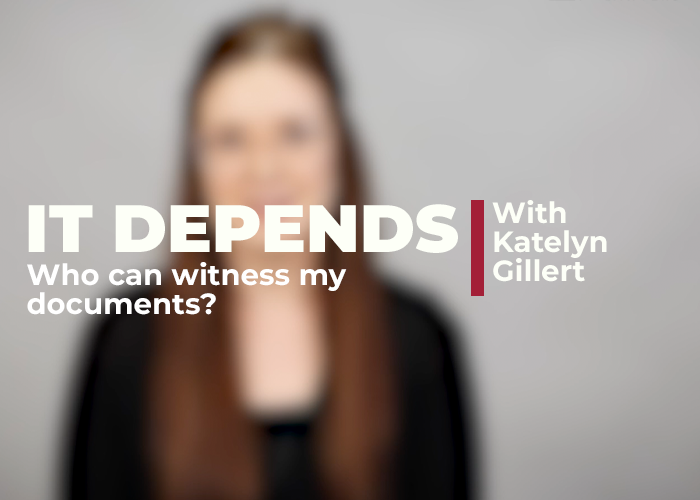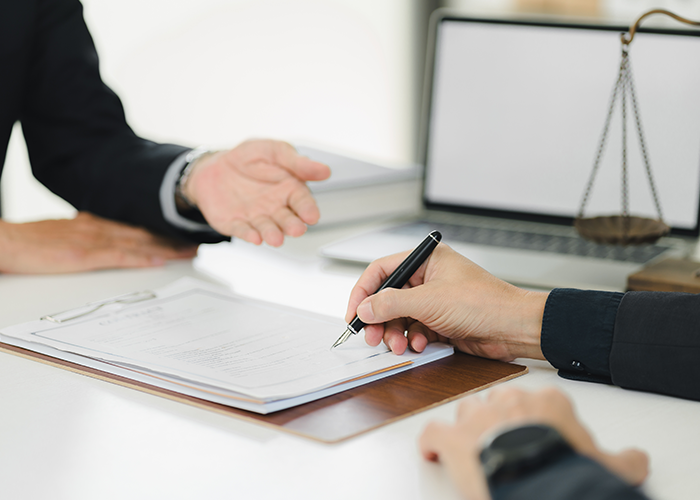In this edition of ‘It depends’, lawyer Katelyn Gillert explains who is able to witness your documents and what kinds of documents need to be witnessed.
VIDEO TRANSCRIPT
Welcome to It Depends. Today, we are going to discuss who can witness your documents.
What kinds of documents need to be witnessed?
There are a number of documents that may require your signature to be witnessed, including Wills, enduring powers of attorney, deeds and statutory declarations. Having your signature witnessed is an important step towards ensuring that your document is valid, binding and enforceable.
Who can witness my documents?
It depends, and it will depend on the kind of document that you are signing. Different kinds of documents require different kinds of witnesses. There are also differing requirements in different jurisdictions. Some documents, such as Wills, will also require more than one witness. Generally though, a witness should be someone who is over the age of 18, who is not mentioned or a party to the document. Who is not a beneficiary where the document relates to trusts or superannuation and someone who is not related to you. However, some documents will also require an authorised witness.
What if my documents require an authorised witness?
Some legal documents, such as enduring powers of attorney, statutory declarations and affidavits will require an authorised witness. Different jurisdictions will have different requirements and different categories of authorised witnesses. However, generally speaking, an authorised witness will include a justice of the peace, a lawyer, a commissioner for declarations, an officer of the court, or some other professions, such as doctors, pharmacists or a police officer. An authorised witness will generally need to write down what their qualification is on the document that they are witnessing.
What if I get it wrong?
Again, it will largely depend on the document that you are signing. However, in most cases, where the witnessing has not been completed properly, there is a risk that your document will not be valid, enforceable or binding. In some cases, such as Wills, there is also a risk that your wishes will not be upheld after your death. As best practice, when witnessing documents, you should ensure that your witness is not related to you or any other person related to the transaction. You should use the same pen as your witness, and you should also make sure that your witness and yourself initial any changes that are made to the document.
If you do have any other questions about witnessing your documents, please contact a member of our team.






